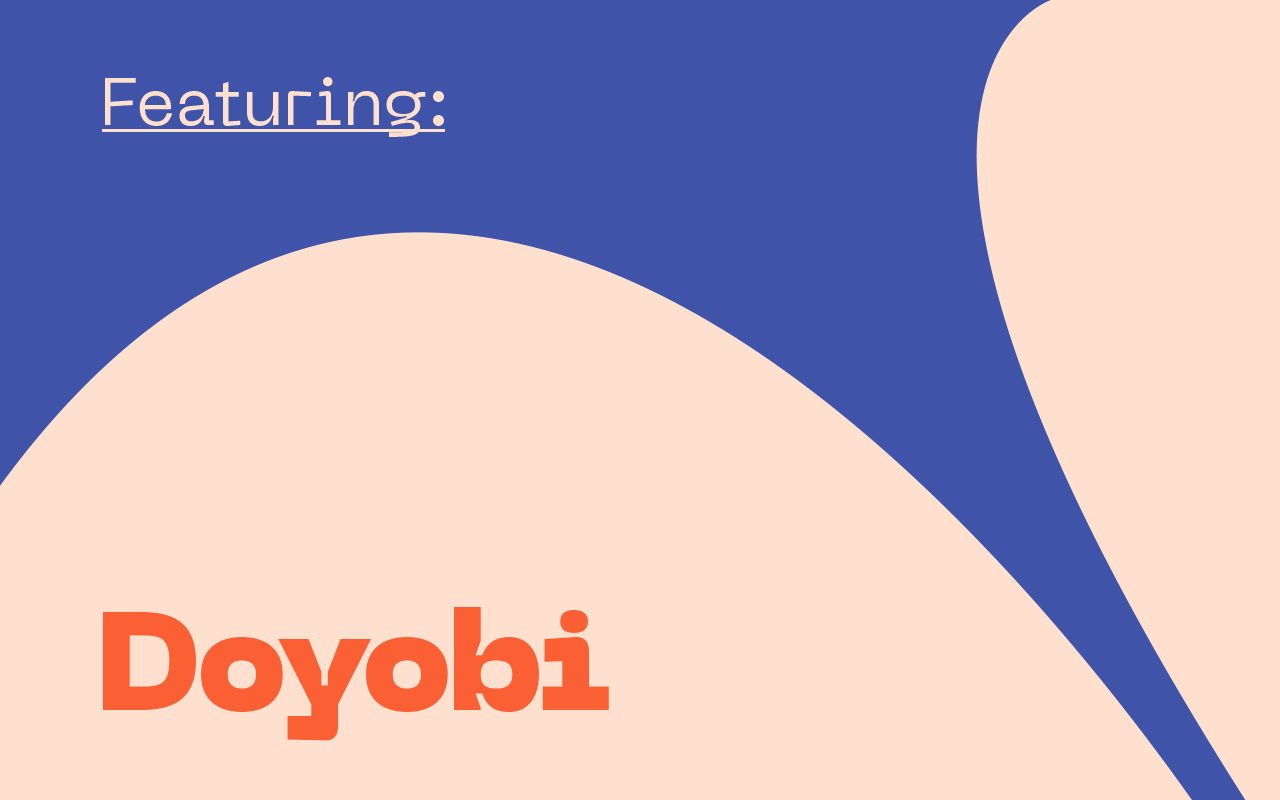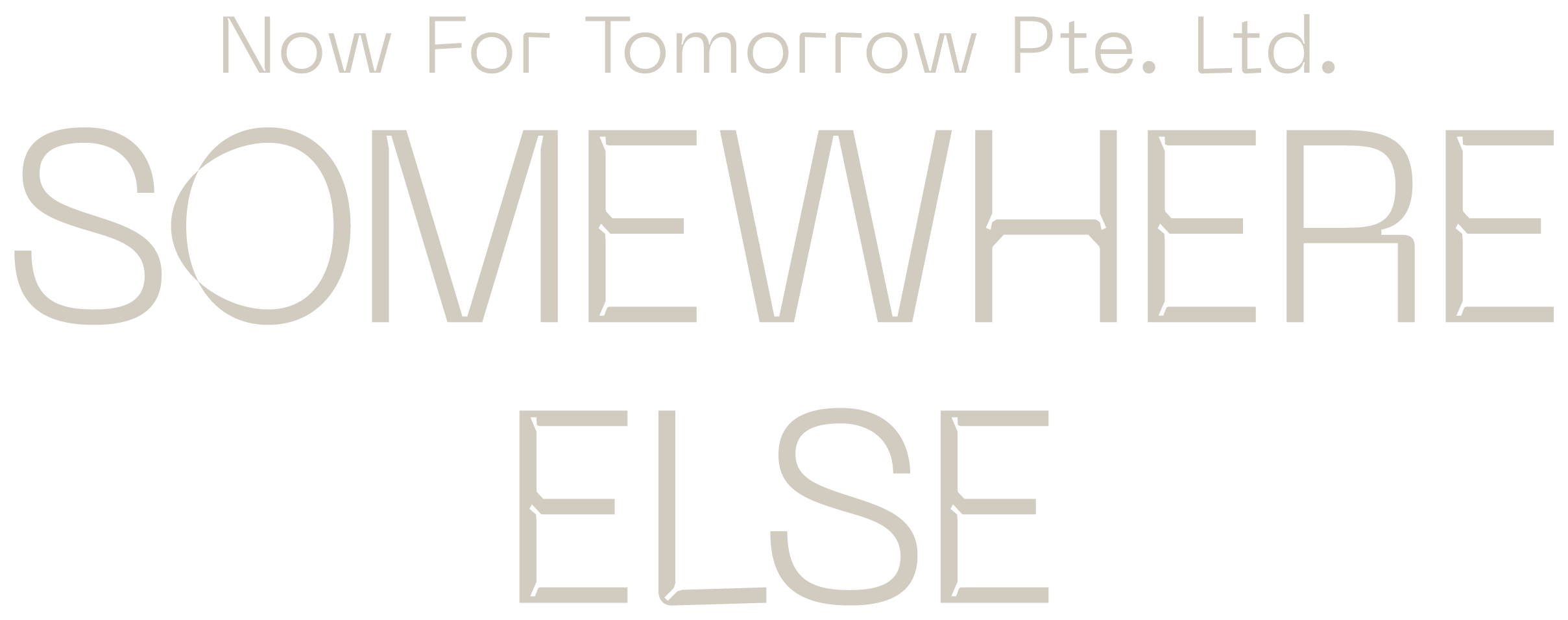How ‘not teaching kids how to code’ equips students to be future inventors, entrepreneurs, and changemakers.
brands that love people...#02

©Somewhere Else
Just before his vacation, John Tan, founder and CEO of Doyobi generously makes time to share with us his thoughts on the future of education.
1)Why coding will not just be an essential job requirement, but a fundamental life skill.
Coding is just a tool, it shouldn’t be the only tool in their toolkit, it could be writing, videography, podcasts, even no-code tools. The end goal is far more important — which is to give our kids a ‘creator’ mindset. They’re not just consumers, they’re creators and problem-solvers.
Fundamentally we need kids who are builders and problem-solvers, we need to encourage kids to use their imagination and express their ideas through building.
Fundamentally we need kids who are builders and problem-solvers, we need to encourage kids to use their imagination and express their ideas through building.

I see a gap between what schools are teaching and what kids need to solve “humanity-scale challenges”. Our kids will be the ones solving climate change and environmental issues, but school is not even teaching kids to solve these problems!

2)Particular challenges in these times for teachers trying to adapt to the virtual learning environment.
Education has become about “stuffing students with random facts.” It’s not that the teachers don’t know, it’s just that they don’t have a choice.
Education has become about “stuffing students with random facts.” It’s not that the teachers don’t know, it’s just that they don’t have a choice.
We need to upskill teachers and can’t expect them to bring STEM / 21st century skills into the classroom when they haven’t been trained. What’s missing is time and headspace to learn something new, especially when teachers are already struggling to deliver the curriculum. It does take an enlightened school principle or leader.
It’s very hard because very few principals are like that. We need school leaders who can say, “It’s okay to cover 80% of the curriculum and use the remaining time to cover creativity, critical thinking, etc. and we’ll send you for PD courses so you can teach these skills.”
It’s very hard because very few principals are like that. We need school leaders who can say, “It’s okay to cover 80% of the curriculum and use the remaining time to cover creativity, critical thinking, etc. and we’ll send you for PD courses so you can teach these skills.”
3)Institutional challenges faced around capacity-building and school culture when bringing STEM and 21st — century skills to the classroom.
With most things in life, you can understand how something works by looking at the underlying incentives. School principals are incentivised based on how students do on standardised tests.
![]()
With most things in life, you can understand how something works by looking at the underlying incentives. School principals are incentivised based on how students do on standardised tests.

Intuitively, people understand that culture isn’t something that can change overnight or even over a year because it’s deeply entrenched in an organisation. If an organisation (school or company) has done things a certain way for a very long time, the temptation is always to keep doing things the way they’ve always been done.
We need more “Mavericks”, especially in the context of a school. To be a traditional teacher in the school system, you’ll get beaten down. The nail that stands up will be first to be hammered.
We need more “Mavericks”, especially in the context of a school. To be a traditional teacher in the school system, you’ll get beaten down. The nail that stands up will be first to be hammered.
4) The advantages of virtual learning environments for nurturing curiosity, creativity, growth mindsets and resilience compared to real-world classrooms.
Virtual Learning Environments (VLEs) give kids access to coaches and instructors outside of the classroom because they’re no longer limited by what the school teacher can teach, which is really powerful.
At Doyobi, we’re working on “cohort-based courses for kids” because 65% of kids today will work in jobs that don’t yet exist. And what’s the best way to predict what jobs will exist? It’s to invent those jobs yourself. The next best way is to ask people who are building the next Apple/ Amazon/ Google what skill sets they’re looking for.

I’ve read a couple of Howard Gardner’s books about multiple intelligences. Fundamentally as educators we need to accept that every learner is unique.
There’s this Youtube video going around that says “different learning styles is a myth” (Google it) - it’s not true that people have different learning styles, but they can be cognitively wired to be more adept at certain things than others, e.g. you can’t ask a fish to climb a tree.
Every young person has unique potential, the purpose of education is to help kids exceed their potential, the role of the teacher is to activate learning and inspire that desire to learn, that self-motivation.

For me, the starting point for any teacher should be understanding the child and what motivates the child. Once you can unlock that, everything becomes so much easier. It’s much easier to get a child to learn if their intrinsic motivations are there.
6)Why cross-subject learning is more ‘human’ than single-track learning.
It just mirrors the real world. In the real world, you don’t spend one day just doing math. In any problem you encounter at work, you need to use different skills to solve the problem and come up with a product/ solution.
Why is that students are conditioned to categorise problems as science/ math problems? Real life doesn’t work like that, the real world doesn’t come with instructions.
7)Why Doyobi believes it's critical for teachers “see learning through the eyes of their learners”.
Our professional development programs teach our teachers to be comfortable with ambiguity and failure.
Our professional development programs teach our teachers to be comfortable with ambiguity and failure.
You can’t expect kids to receive constructive feedback if you can’t tolerate failures and mistakes.
If a teacher has been teaching for 30 years, they might feel they’re a sage and are there to disperse knowledge to the kids. It’s completely one-directional. The flipside is that the moment you show something new, they freak out because they’re not 100% confident that they know every single answer. To me that’s one of the biggest challenges in introducing something new to the classroom.
If a teacher has been teaching for 30 years, they might feel they’re a sage and are there to disperse knowledge to the kids. It’s completely one-directional. The flipside is that the moment you show something new, they freak out because they’re not 100% confident that they know every single answer. To me that’s one of the biggest challenges in introducing something new to the classroom.

When we try to get schools to adopt our STEM curriculum, the pushback typically comes from the teachers, e.g. “We don’t have any coding background”. Even if the principal carves out time for them to go to training, they still may not accept the fact that they don’t know the answers to all the questions.
What needs to change is redefining the role of the teacher in the classroom. John Hatti says that the role of the teacher is “activator”, though I disagree with the statement that a teacher should not be a coach/ facilitator/ mentor (he believes the teacher still needs to perform the role of teaching).
I believe the role of the adult in the classroom is to show the kids that they don’t have the answers to everything (that’s what the internet is for), “If you’re not sure, let’s learn together, I can learn from you just as much as you from me”. We need to rethink the dynamics of the classroom and the role of the adult.
What needs to change is redefining the role of the teacher in the classroom. John Hatti says that the role of the teacher is “activator”, though I disagree with the statement that a teacher should not be a coach/ facilitator/ mentor (he believes the teacher still needs to perform the role of teaching).
I believe the role of the adult in the classroom is to show the kids that they don’t have the answers to everything (that’s what the internet is for), “If you’re not sure, let’s learn together, I can learn from you just as much as you from me”. We need to rethink the dynamics of the classroom and the role of the adult.

There’s much reluctance to get outside of their comfort zone, e.g. with crypto, early adopters were those who didn’t have access to traditional financial instruments. If you have access to what’s traditional and you’re used to operating that way, it’s quite uncomfortable to acknowledge that your way of doing things is becoming irrelevant.
That was the intent behind our Saturday Kids Zine: https://issuu.com/saturdaykids (See the manifesto on the last page). Other coding schools cannot copy the DNA, the culture, it’s hard to fake, the ethos really comes through.
That was the intent behind our Saturday Kids Zine: https://issuu.com/saturdaykids (See the manifesto on the last page). Other coding schools cannot copy the DNA, the culture, it’s hard to fake, the ethos really comes through.

The story behind the name “Saturday kids” was from the idea that what you learn at Saturday kids is just as important as what you learn Monday-Friday. “Doyobi” - means Saturday. We are 70% female, we are very pro- girls in tech, and empowering girls to have a voice.
Want to equip your kids to be future founders?





